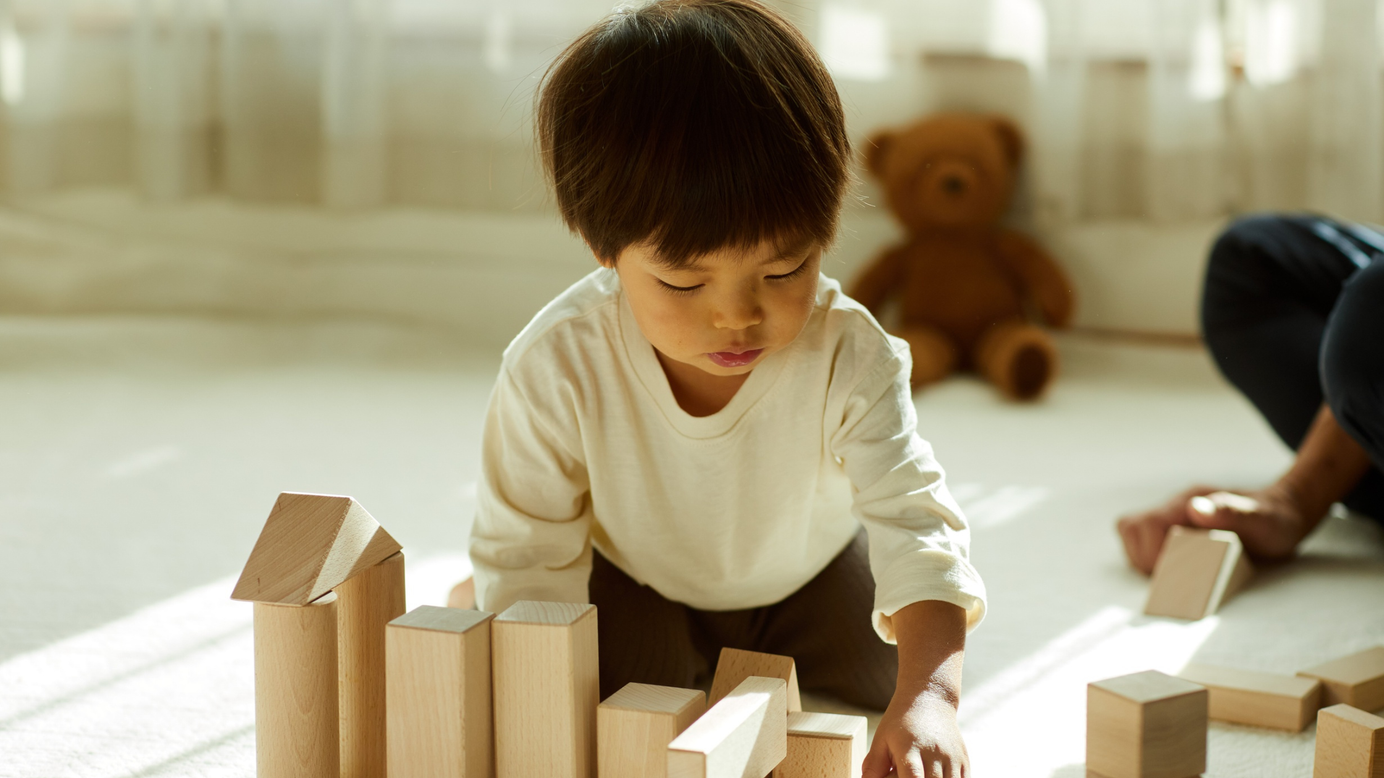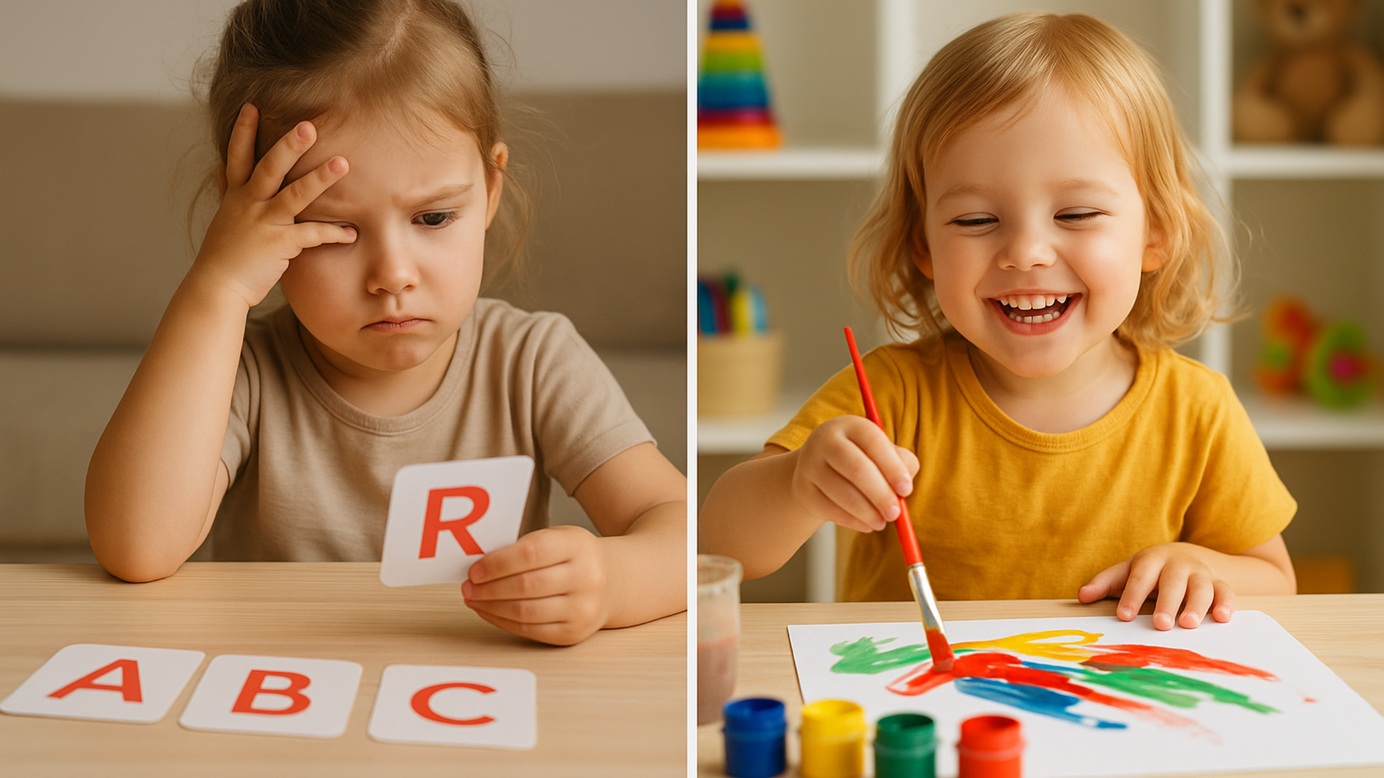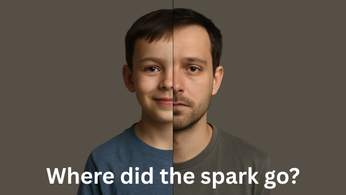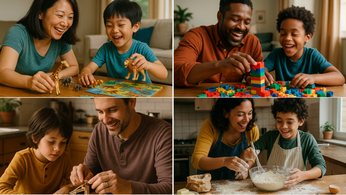
5 Screen-Free Games That Boost Your Toddler’s Brain (No Gadgets Required)
Simple, joyful games that fuel focus, creativity, and growth—using only what you already have at home.
Screens are a double-edged sword. Some days, they’re the only thing keeping me sane. Other days, they’re the reason my toddlers refuse to eat, sleep, or do anything without their favorite show playing in the background.
And when it’s not screens, it’s toys. Every meltdown turns into a negotiation involving the next shiny thing. The toy industry is worth billions for a reason.
But deep down, I know my kids don’t need more screen time, or another gadget, or the latest “educational” toy.
What their brains truly crave is hands-on, real-world play — the kind that sparks imagination, builds focus, and develops problem-solving skills.
Here are five simple, gadget-free games I play at home. No batteries. No downloads. Just pure play.
1. Color Hunt
The Game: A whole-house treasure hunt for colorful objects.
Why It’s Brilliant: Builds color recognition, memory, and early vocabulary.
How to play: Shout, “Find something blue!” and watch your tiny tornado dash off with a crayon, slipper, or dad’s tie.
Expert tip: Dr. Maria Montessori believed sorting and matching were foundational to logical thinking. In her words: “The hand is the instrument of the mind.”
Level up: Call out two colors or hide objects under cups for a memory-boosting twist.
2. Bath Time Fun
The Game: A splashy combo of sensory play and early science.
Why It’s Brilliant: Turns daily routines into learning labs—no resistance, all fun.
How to play: Add cups, spoons, measuring jugs, and sponges. Ask, “What sinks? What floats?” or “Can you fill this cup using only the sponge?”
Expert tip: Dr. Kathy Hirsh-Pasek calls water play “a natural lab for toddlers.” It’s STEM learning disguised as fun.
Level up: Explore “more vs. less” or play pretend with “bubble soup” and bath-time tea parties.
3. Puzzle Piece Workshop
The Game: Chunky puzzles featuring animals, vehicles, or letters.
Why It’s Brilliant: Builds concentration, spatial awareness, and executive function.
How to play: Let them explore solo first. Then offer gentle tips on spotting edge pieces or matching patterns.
Expert tip: Cognitive scientist Dr. Alison Gopnik says puzzle play helps kids plan steps and think ahead.
Level up: Mix pieces from two puzzles for a “what doesn’t belong?” game.
4. Balloon Bop
The Game: Keep a balloon airborne—no hands required!
Why It’s Brilliant: Teaches hand-eye coordination, focus, and self-control. Also: instant giggles.
How to play: Toss a balloon and bop it using hands, heads, or spoons.
Expert tip: Dr. Jane Case-Smith says games like this boost attention span and impulse control—key skills for thriving in preschool and beyond.
Level up: Add a second balloon or set a “don’t-let-it-touch-the-floor” challenge.
5. Box Fort Architect
The Game: Turn delivery boxes into castles, spaceships, or secret hideouts.
Why It’s Brilliant: Sparks imagination and builds early engineering skills.
How to play: Don’t recycle those Amazon boxes just yet. Give them scissors (child-safe!), tape, and let them design their dream fort.
Expert tip: Dr. Stuart Brown says unstructured construction play develops brain flexibility and resilience. Translation: forts today, innovation tomorrow.
Level up: Add creative challenges—“build a bridge,” “make a tunnel,” or “design a spaceship.”
Real-Talk Wrap-Up
Your toddler’s brain doesn’t shut off—it’s absorbing, experimenting, and adapting all day long. And the best part? You don’t need to “schedule” learning time. Everything is learning time.
So raid the recycling bin. Get messy. Laugh hard. Celebrate the silly moments. Because those balloon games and bath-time experiments? They’re not just fun—they’re memories your child will cherish.
Play hard. Learn easy. Grow smarter—together.
GiftedTalented.com
The world's fastest growing gifted & talented community









